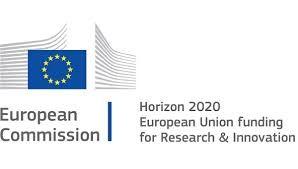Diagnosis and Management of Febrile Illness using RNA Personalised Molecular Signature Diagnosis (DIAMONDS)
Aim
1. To establish the European Diagnostic Transcriptomic Library based on data from over 15,000 patients with infectious and inflammatory conditions. This curated RNA expression library will include data on clinical phenotype, presentation, severity of illness and outcome and will include all ages, sexes, ethnicities, co-morbidities and include the wide range of infectious and inflammatory conditions.
2. To use the data in the European Diagnostic Transcriptomic Library to develop a comprehensive molecular taxonomy of infectious and inflammatory diseases based on RNA expression.
3. To use novel computational dimensionality reduction techniques, multinomial variable selection methods and cost-sensitive approaches to identify a minimal transcript signature for all common infectious and inflammatory diseases as the basis for PMSD.
4. To evaluate the diagnostic performance of the transcripts required for PMSD using a high throughput transcriptomic approach in an independent validation cohort of patients presenting with fever and inflammatory conditions, and including challenging patient subgroups at the extremes of age, and patients with underlying co morbidities.
5. To develop test platforms for rapid detection of PMSD transcripts in collaboration with academic, industrial and small and medium-sized enterprises (SME) partners, and to compare the detection performance of these devices to existing RNA-detection technologies.
6. To select the best performing device for evaluation in a large-scale pilot demonstration of PMSD as compared with current diagnostic practices in multiple EU health care settings.
7. To describe current diagnostic practices for febrile patients and preferences of end-users in multiple EU countries as well as the economic and societal costs and to assess the acceptability and likely uptake of PMSD.
8. To use the data from the pilot demonstration and current practice (objective 7) to model the potential clinical and health economic impact of PMSD in different EU national health care settings, and determine the impact of PMSD implementation on health systems across Europe.
9. To disseminate the findings to regional, national and EU policy makers to demonstrate the benefits of a healthcare model based on PMSD and advocate for widespread implementation of PM.
Description
The proposal will address the challenge of bringing personalised medicine into routine use in EU healthcare systems for diagnosis and treatment of common infectious and inflammatory diseases, which account for a up to a third of all medical encounters in primary care and hospital. The diagnostic process in clinical medicine has been based on recognition of a constellation of symptoms and clinical signs, supported by laboratory tests. However, a definitive diagnosis is currently made in only a minority of patients presenting to healthcare with suspected infection or inflammation. We have previously shown that individual infectious and inflammatory diseases are characterised by unique patterns of host gene expression, and that diagnosis of individual diseases can be based on small numbers of uniquely expressed genes. We propose a new diagnostic classification of infectious and inflammatory diseases, based on the discriminatory ability of a minimal set of genes, which is able to distinguish all common conditions simultaneously, an approach we call Personalised Molecular Signature Diagnosis (PMSD). In partnership with 22 hospitals in 11 EU countries, and biotechnology groups in academia, SMEs and industry, we will develop a device to detect genes required for PMSD. We will then undertake a large-scale pilot demonstration in diverse healthcare settings in Europe, to establish the benefit to patients, reduction in healthcare resource use, cost effectiveness and acceptability to patients and carers, of PMSD.





